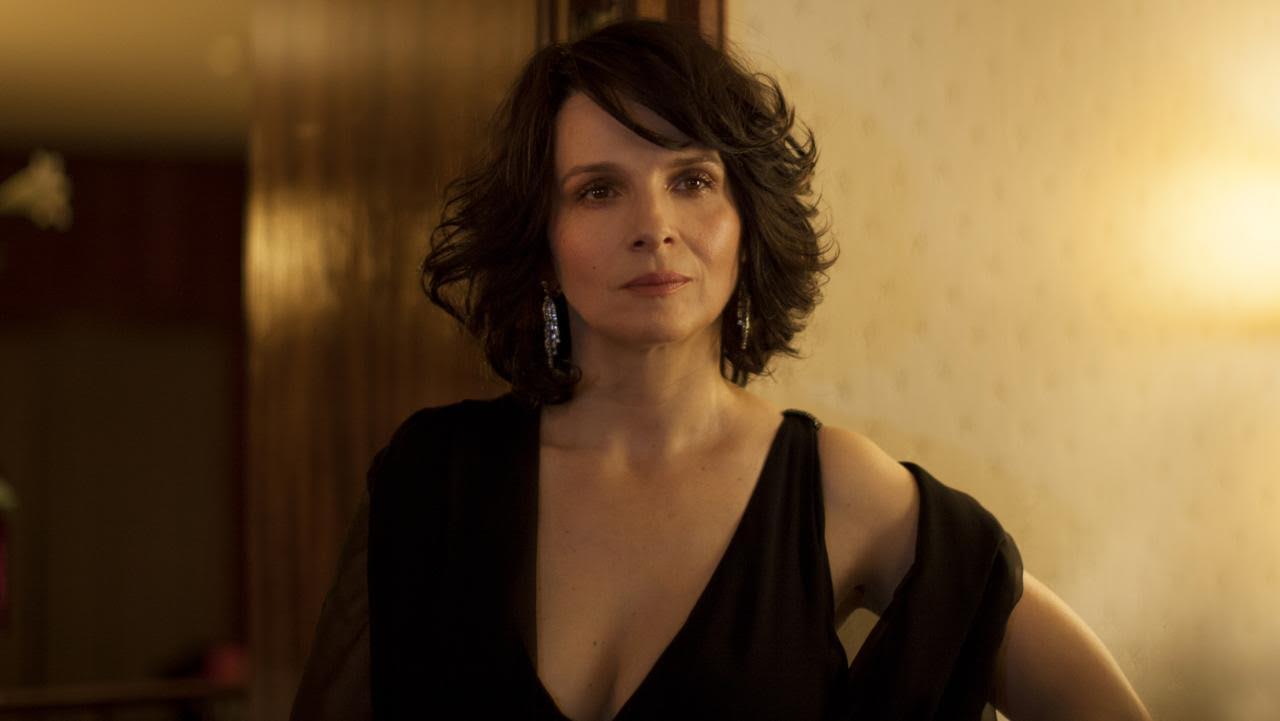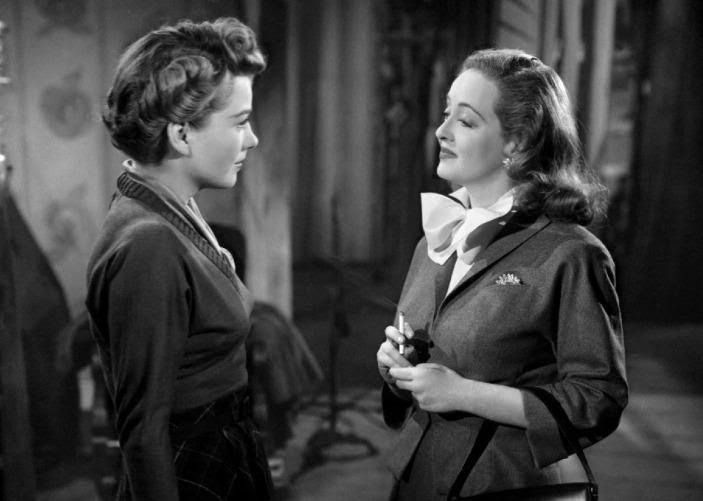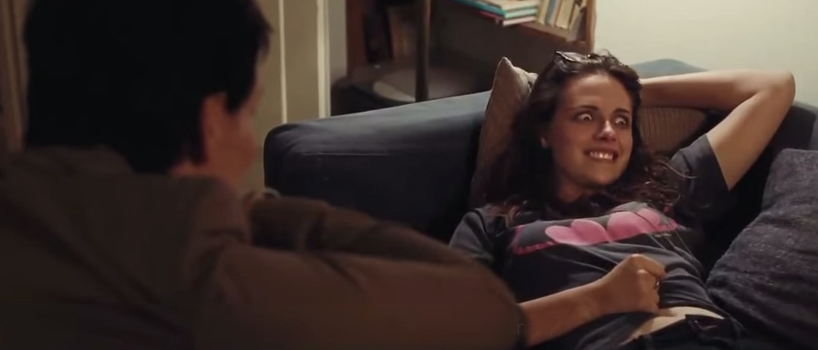With Clouds of Sils Maria on DVD now, here's Kyle Stevens on actors playing actors.
 If you’re a reader of The Film Experience, then you’re probably no stranger to Juliette Binoche, who arguably has more masterpieces to her name than any other actor in cinema history. Binoche became a bona fide French star with André Téchiné’s Rendez-vous in 1985, which was written by the now celebrated director Olivier Assayas. Last year, Binoche asked Assayas to write something for her so that they might again collaborate. He came up with the astounding Clouds of Sils Maria.
If you’re a reader of The Film Experience, then you’re probably no stranger to Juliette Binoche, who arguably has more masterpieces to her name than any other actor in cinema history. Binoche became a bona fide French star with André Téchiné’s Rendez-vous in 1985, which was written by the now celebrated director Olivier Assayas. Last year, Binoche asked Assayas to write something for her so that they might again collaborate. He came up with the astounding Clouds of Sils Maria.
Their film follows the great star Maria Enders as she struggles to accept playing Helena in Maloja Snake, a play written by her recently departed friend. The difficulty for Maria is that she first became famous playing the ingénue role, Sigrid, decades earlier, and so, the role of Helena forces her to confront her feelings about aging, feelings compounded by the fact that, within the play, Helena desires and resents Sigrid. To make matters even more baroquely complicated, Helena and Sigrid’s relationship mirrors Maria’s interactions with Val, her personal assistant, coolly played by Kristin Stewart. (Eventually, Chloe Grace-Moretz appears as a third bone-faced brunette, younger still, to play Sigrid.)
Given the laurels recently heaped upon flamboyantly reflexive turns in Blue Jasmine and Black Swan, is it too much to hope that Binoche will leave the red carpet well-worn come awards season—even if the early release and critical attention for Kristen Stewart make that seem unlikely now? [More...]

Binoche gives us a deluge of tears, heartwarming belly laughs, impeccable drunk acting, and a humdinger of a spit take. Just watch her tell stories in the way she knows sycophants want to hear: refined, name-droppy, and with a hint of dirt. It’s a master class in how to act like a star.
Indeed, if you’re a fan of The Film Experience, then you’re probably no stranger to movies about stars and the art of acting, either. Acting has been a favorite cinematic subject at least since King Vidor’s Show People in 1928, and provided fodder for great films, including What Price Hollywood? (1932), Stage Door (1937), A Double Life (1947), The Bandwagon (1953), Day for Night (1973), and Postcards from the Edge (1990). (This list is by no means exhaustive; let’s list more in the comments!) These stories afford opportunities for actors to “metaperform,” that is, to perform characters performing.
Metaperformance often generates a sense of depth, because we imagine different desires and feelings going on at the same time in the characters’ minds—and probably because most of us spend much of our days feeling like we are a person performing a person. Perhaps the narcissism of this cinematic impulse reveals itself in the way these movies tend to follow diva figures, those sublime paramours we love, and also fear a little. They are mercurial, tempestuous, fiery, and all those other elemental adjectives we lay folk use to describe unabashedly passionate types. (And why not? Emotions are like the weather; there’s always something going on.)

For obvious reasons, Sils Maria’s clearest homage is to the greatest of all films about actors, All About Eve (given the ambiguity of Val and Maria’s rehearsing and “real” relationship, there’s a healthy dose of Who’s Afraid of Virginia Woolf? in there, too). In All About Eve, Margot Channing and her (seemingly) obsequious young assistant Eve Harrington’s rivalry also plays out in the theater, the stage being the readymade metaphor for what all the world is. Sils Maria illuminates that Margot and Eve needed each other—we can’t have stars without fans and vice versa. Yet while All About Eve names the threat after Christianity’s original sinner, here, there is a force external to the pair. The titular clouds take the form of a snake that hovers over and winds its way into the world of both women, marking the presence of nature and the passing of time. Like Margot, Maria wants to continue playing young women. Is she resisting Helena’s age? Her lesbianism? Can they even be distinguished when youth is the object of attraction either way? Youth gets attention without even having to ask for it, and, in this sense, is already like being famous. The ingénue is, to the diva, greedy. Maria worries she will be forgotten, and to be forgotten is to die a little.
Sils Maria phrases the rivalry between star and fan, employer and employee, at the level of performance, too, in Binoche and Stewart’s competing realisms. Binoche dramatizes the labor of acting, how coming to know the self of a character is almost as painful as coming to knowledge about one’s self. Binoche cries, screams, and improvises, trying all manner of approaches until she hits on the gestures and intonations that harmonize with her sense of the character. This analytic approach clashes with Stewart’s/Val’s jeans easy clarity. Val intuitively sounds compelling when reading lines. She flaunts this talent, needling Maria by attributing it to her youth and innocence. Youth accepts. Age deals with. Moreover, Maria needs interpersonal encounters to be difficult. If they are as simple as Val makes them out to be, then we don’t need great actors to help us understand them.
And this is the rub. Binoche’s Maria knows too much to welcome life like Val, and yet she can’t stop being jealous, since the prospect of more life is still the best thing to have. (I’ll refrain from talking about the way one notable event might bear on this reading so as not to spoil the surprise for anyone.) Maria Enders shows no less fire or fight than Margot Channing, but nor does she downplay how tiresome, how frustrating, this situation becomes, as in this exchange, which sums up her plight:

Maria: Do I think too much? Am I too classical?
Val: I don’t know. You. Y-you can’t be as accomplished as you are and as well rounded an actress as you are and still expect to hold on to the privileges of youth; it just doesn’t work like that.
Maria: Oh. So I’m allowed to not be old as long as I don’t want to be young, is that it?
Val: Yeah, I don’t know. I guess so.